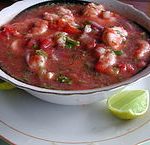How do we travel without disturbing the cultures and places we visit? This is my beautiful question, inspired by global learning and our Journeys trips. A beautiful question should have no easy answer, one should not be able to simply say “yes” or “no” and leave it at that. It should require deep thought and subsequently, more questions. I believe that a beautiful question should seek to be a catalyst for change, the first step towards action. My question is indeed beautiful because it embodies all of these qualities. You cannot “solve” my question with a quick answer. One might say “Don’t make fun of whatever culture you’re immersed in”. Well, that’s a start but it still does not answer my question. What happens when we do everything in our power not to disturb the culture and places we visit, and yet, somehow we still do? My question raises these follow up questions. Is it even possible to travel without imposing ourselves? All of these questions have stemmed from my one beautiful question, and they have the power and potential to create change. If we are aware of our disturbing and imposing actions, we can change them.
Dr. Regine Jackson focused on sociological mindfulness in her presentation and is what informed me the most for my beautiful question. Sociological mindfulness is the understanding that you do not have all the answers or the complete truth. What you have interpreted as fact might be interpreted differently by someone else. This does not necessarily make them wrong, nor does it make you wrong either. This is important when listening to the thoughts of the people whose home you are touring. Be open to new ideas that may contradict your current beliefs. Many people believe they are doing good by going on mission trips to places they perceive as helpless, but what if their help was not wanted? It is this sociological mindfulness that is important when questioning and answering.
Professor Heather Scott discussed authenticity in leadership and its importance. She also questioned how gender affects authenticity and why that is. Authenticity is arguably important in the workplace because it allows leadership to be interpersonal and transformational rather than transactional. Being an authentic leader is about remaining true to yourself and values instead of making yourself look more important or stronger to prove that you deserve respect. When questioning, it is important to remain authentic to your own values and beliefs. I believe that if you are trying to impress someone or gain respect/admiration, the answer to your question will have a skewed effect. We ask beautiful questions as catalysts to create change. So what happens when an unauthentic question is asked? And what qualifies a question as unauthentic? I think it is when a person asks a question with no real intention to answer it. Or maybe the answer to the question will have an undesirable effect. This is what needs to be taken into account when questioning.

